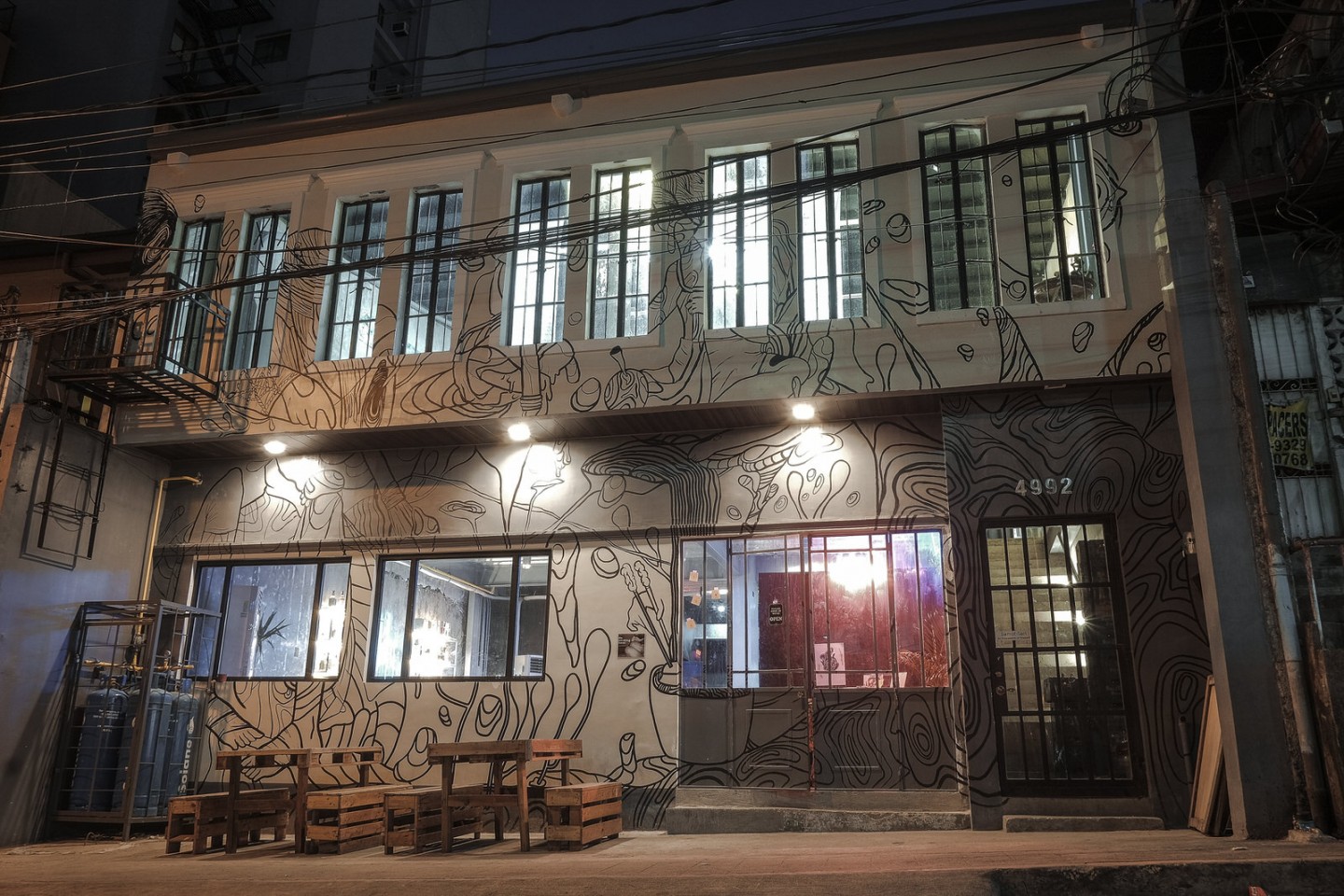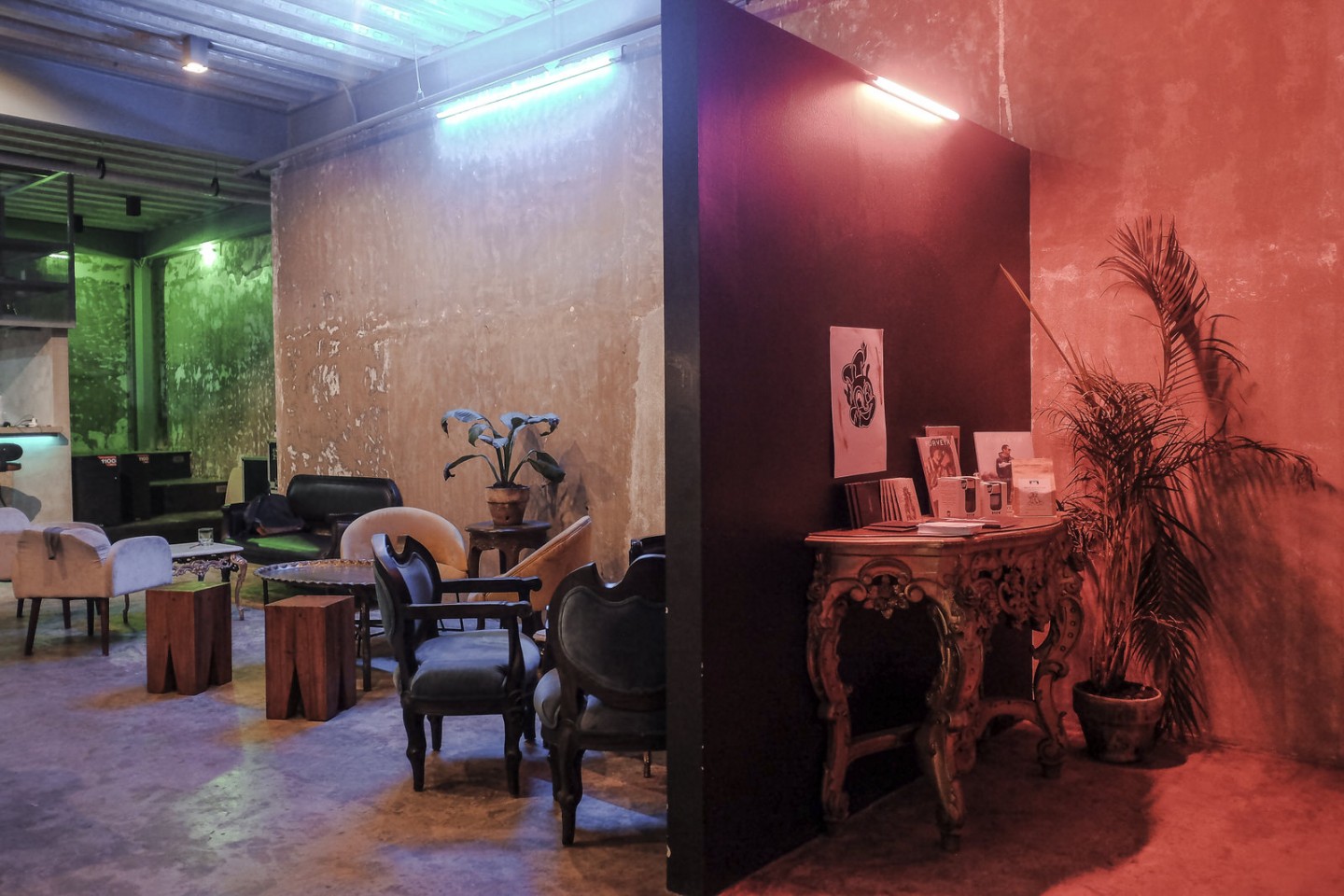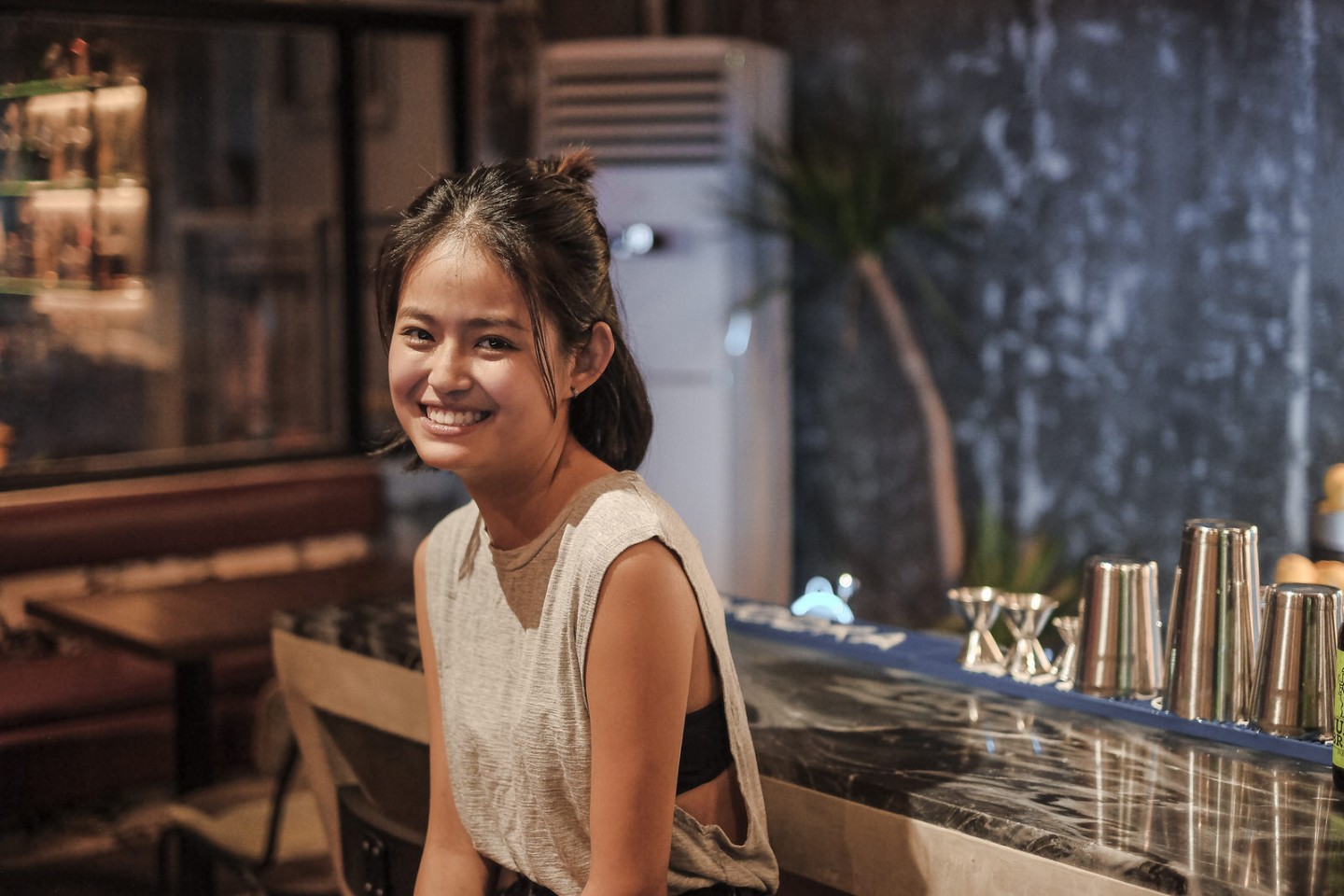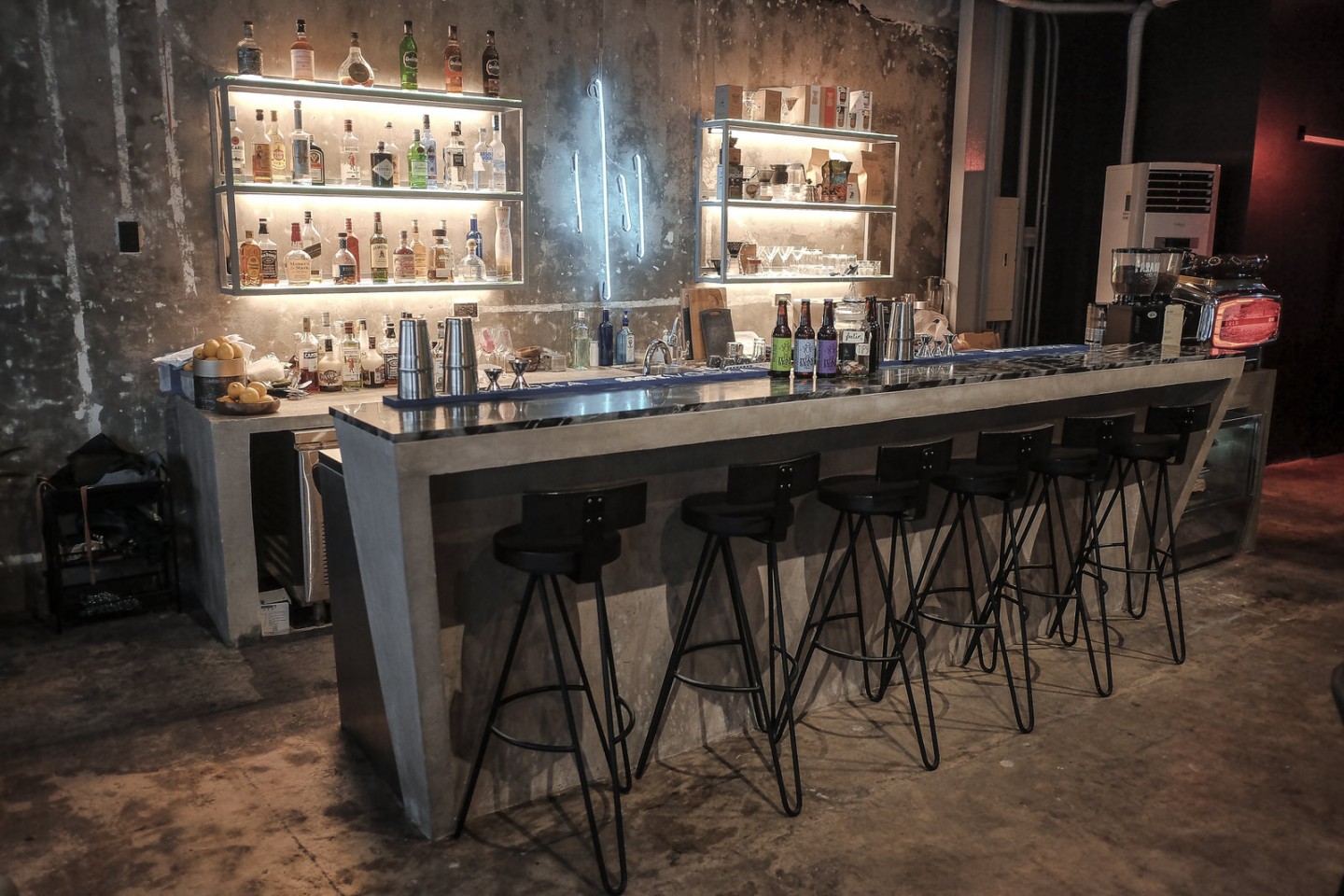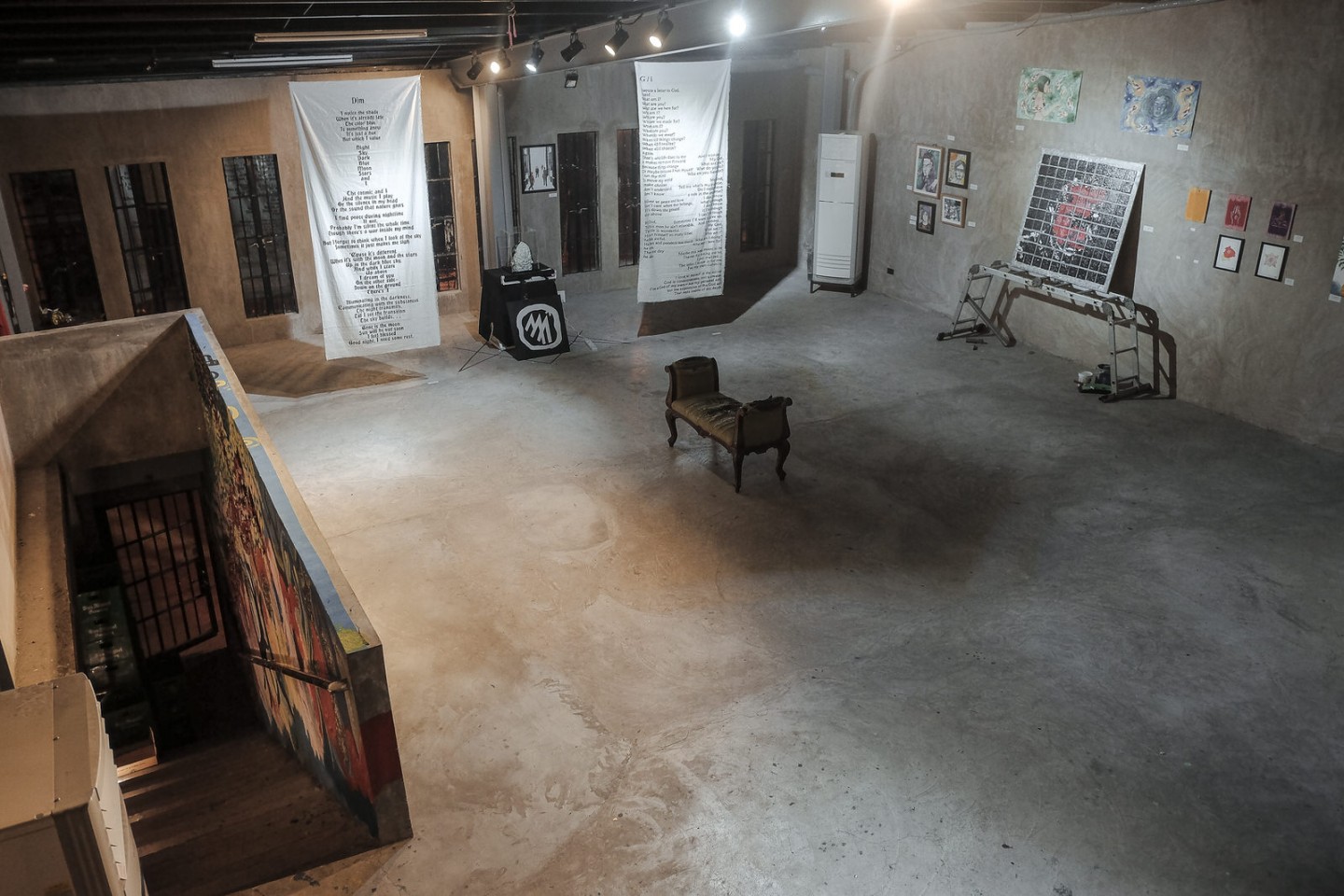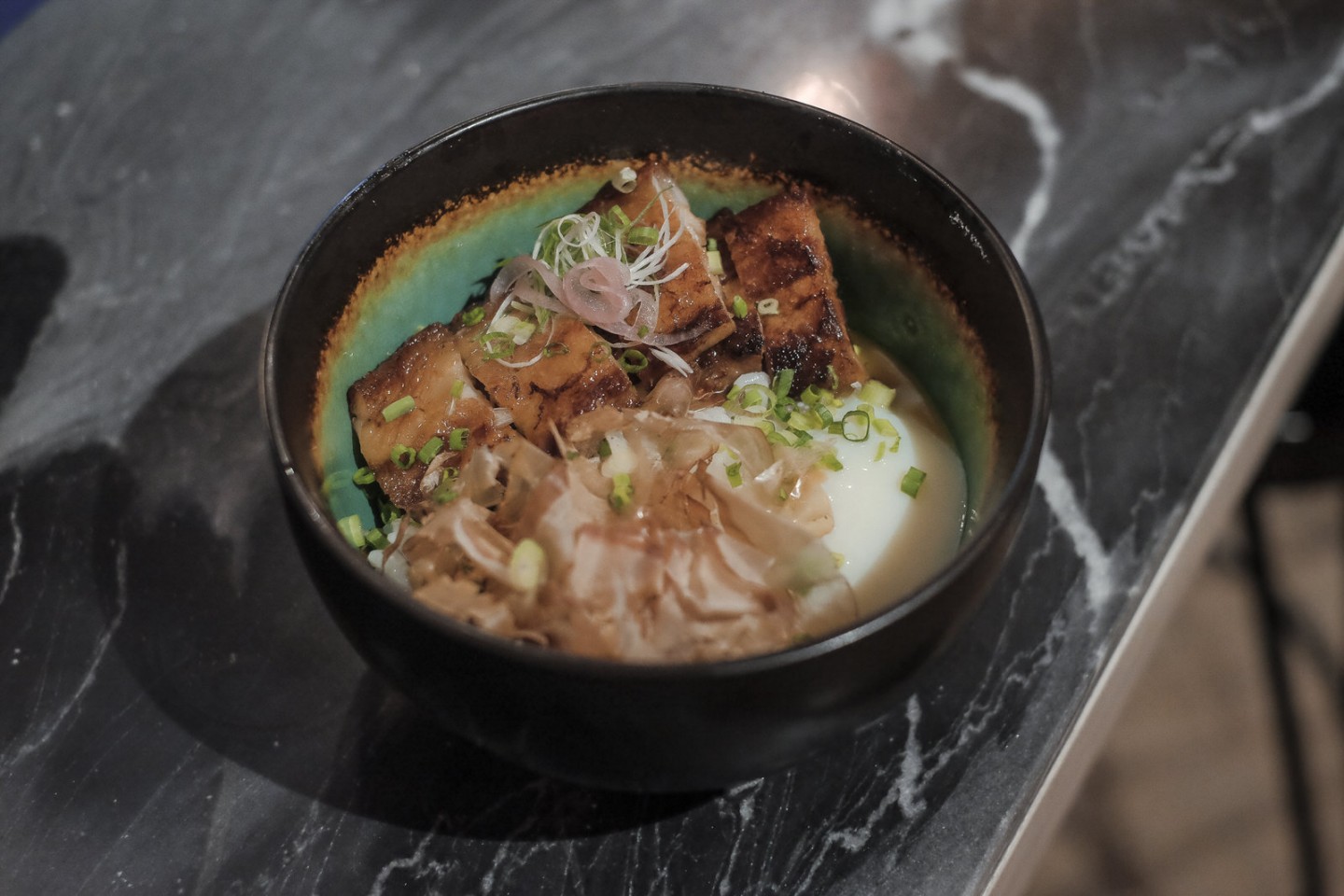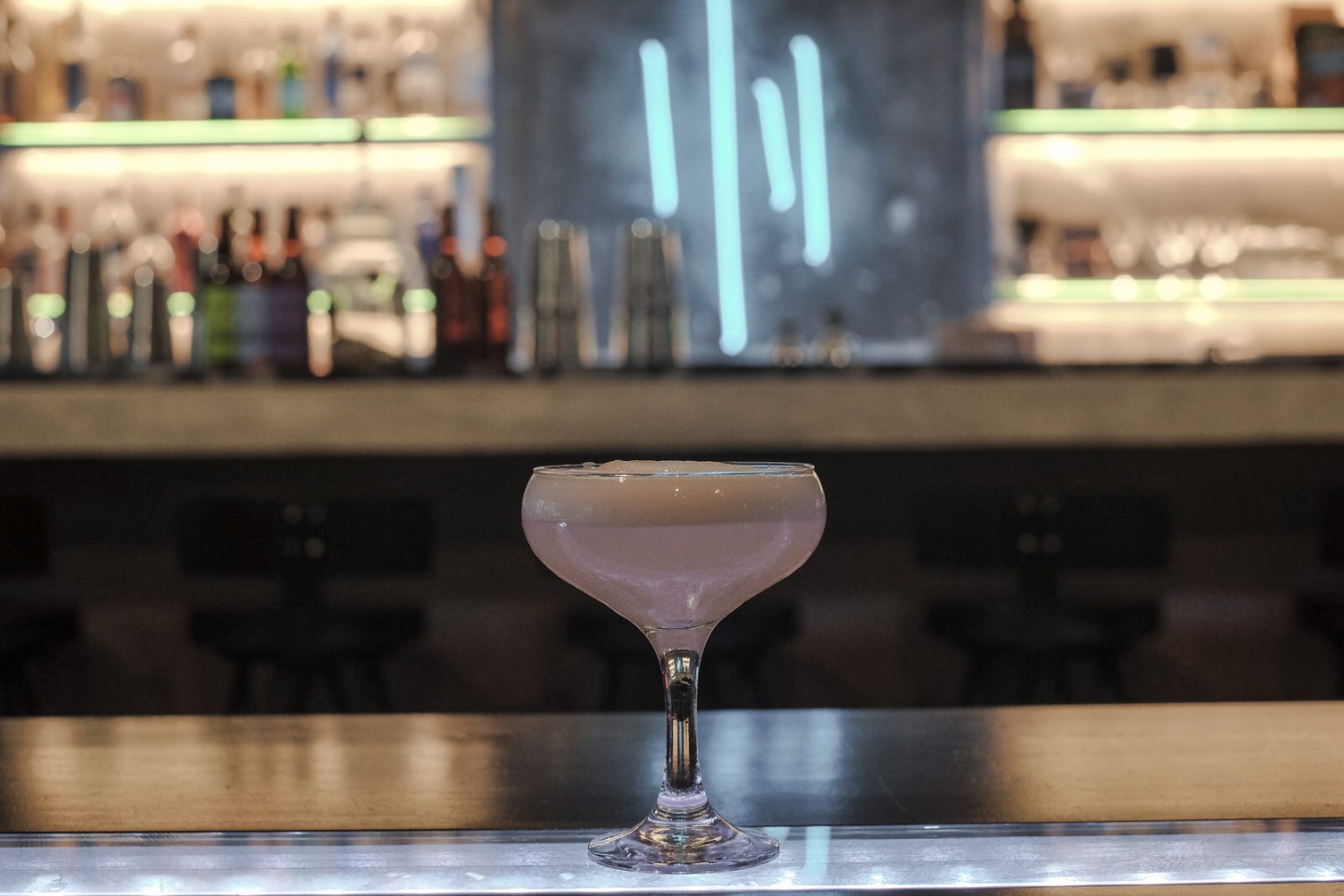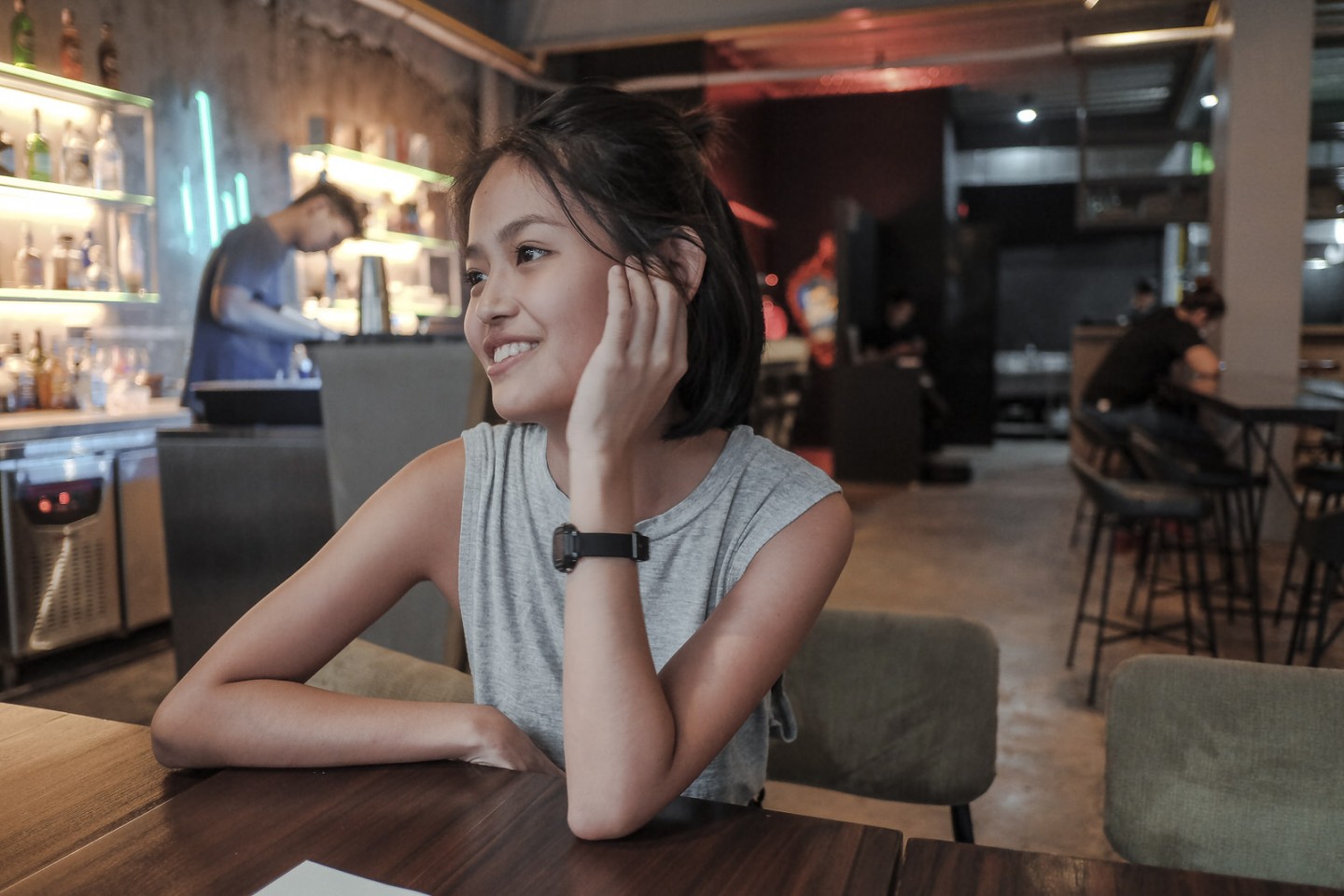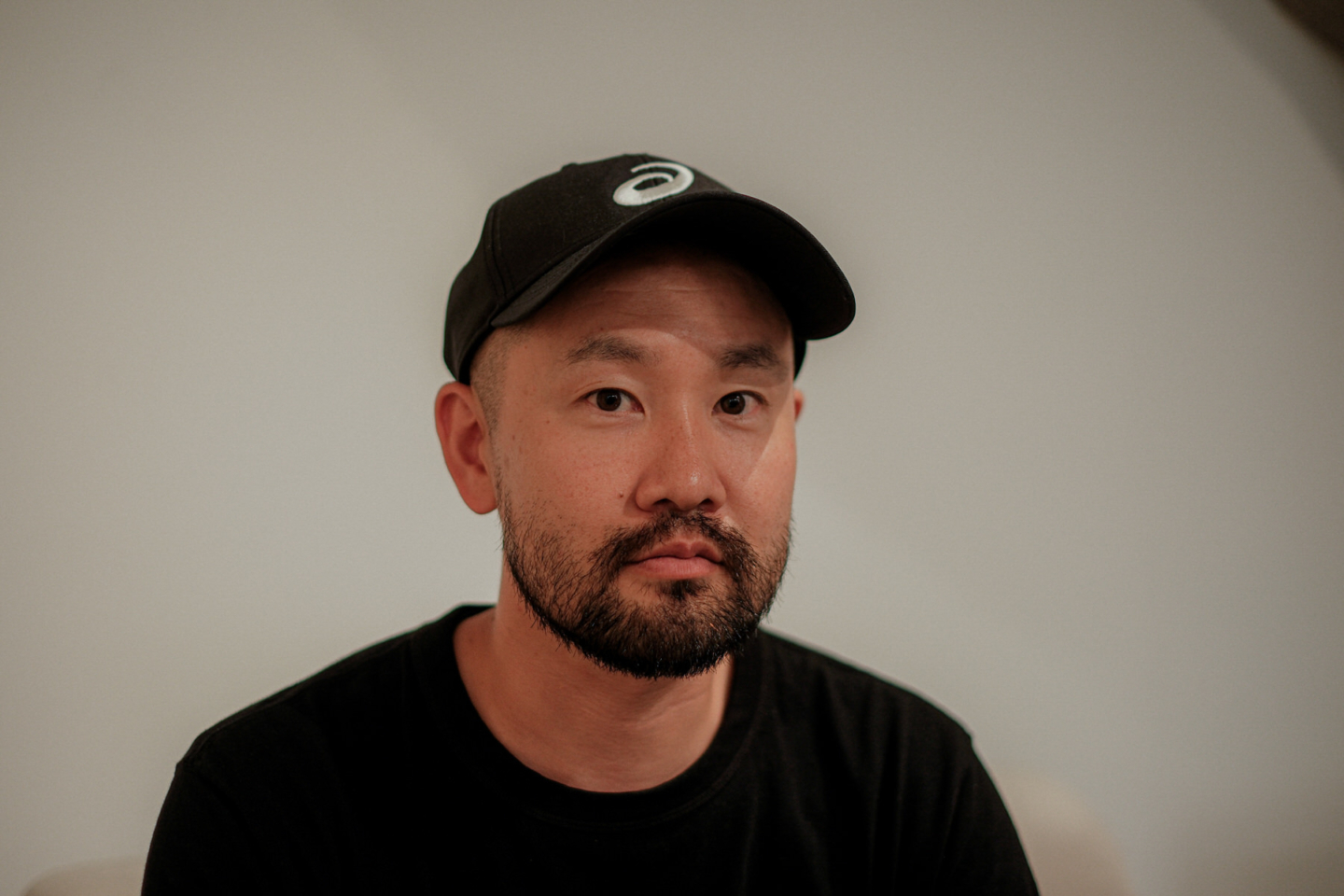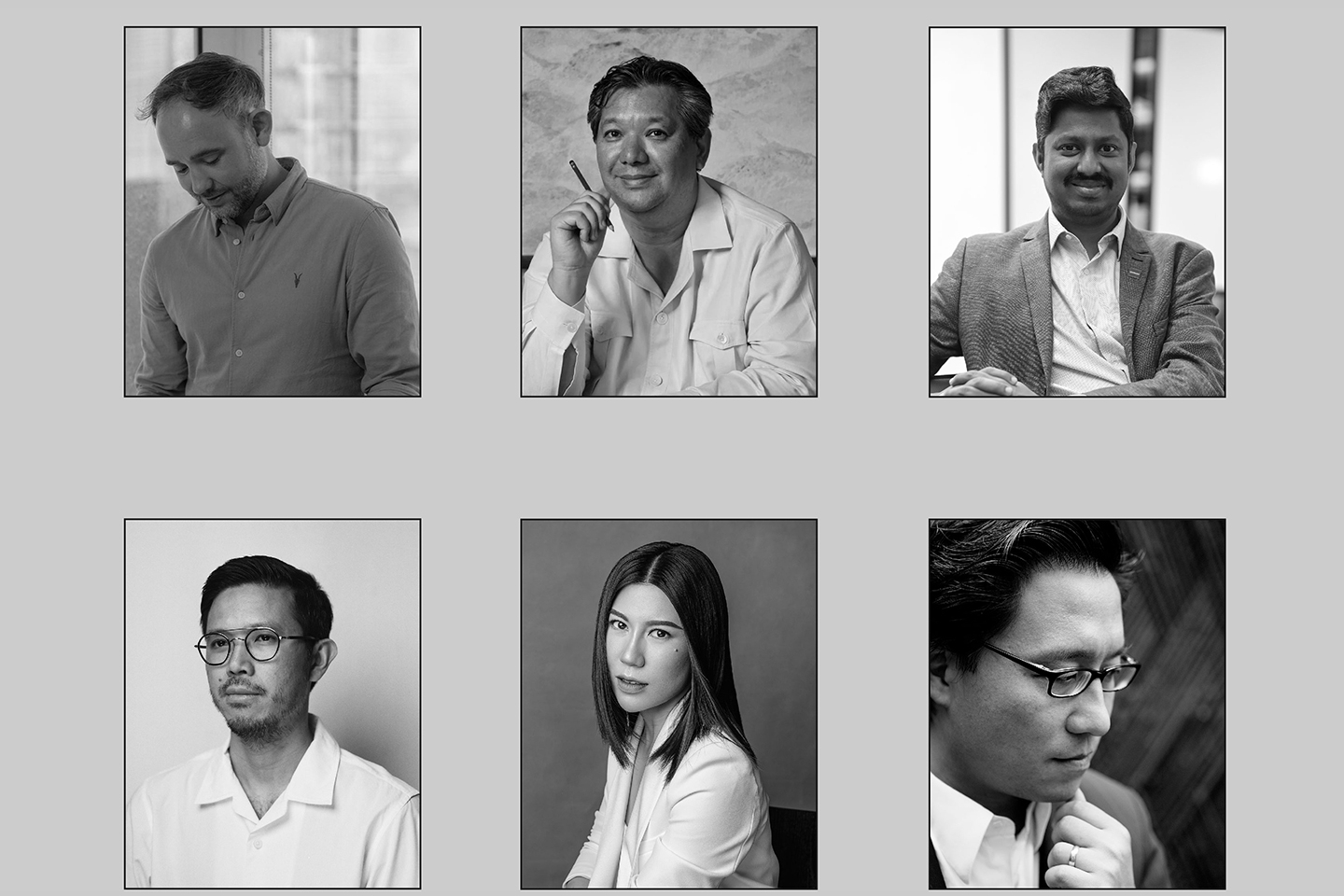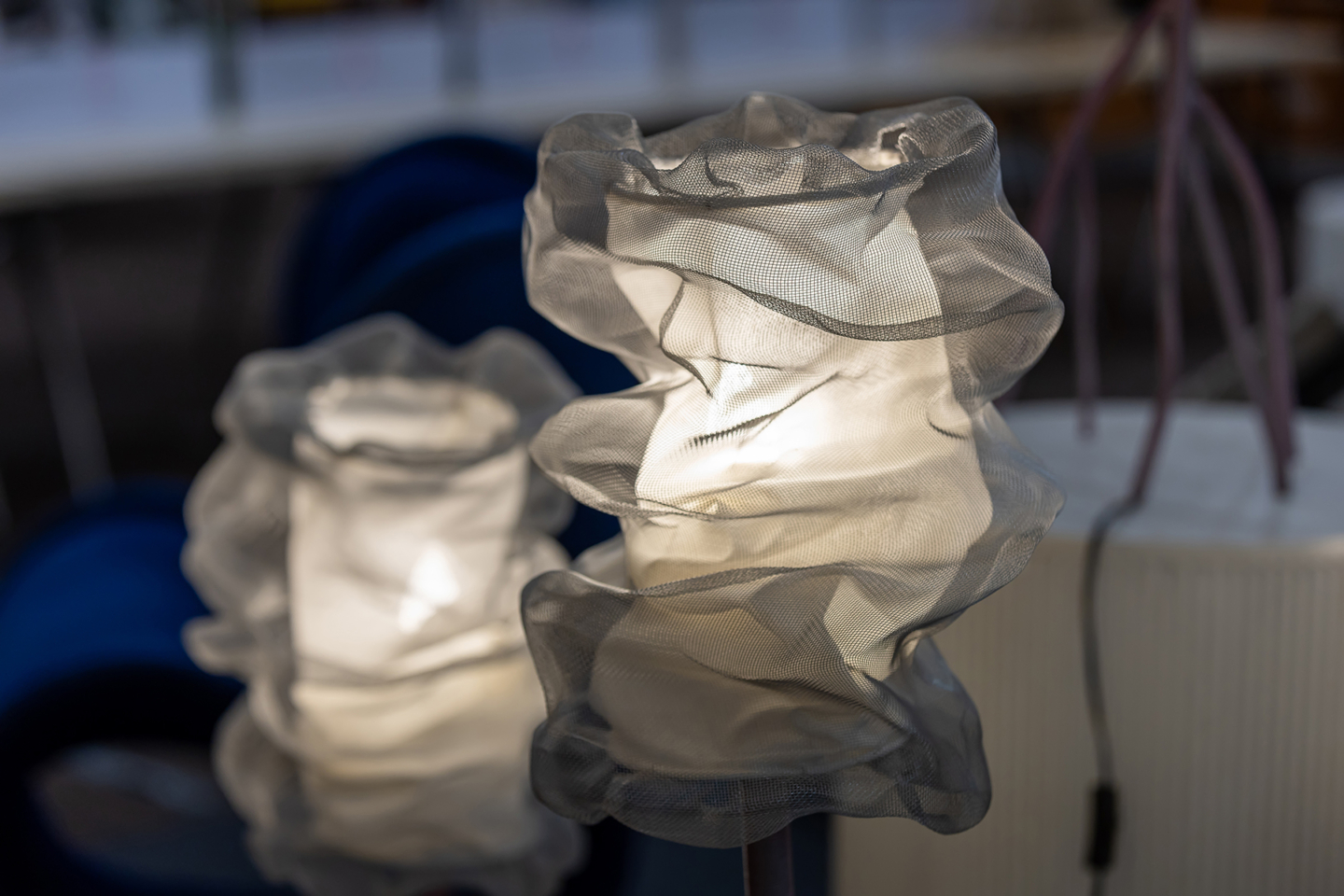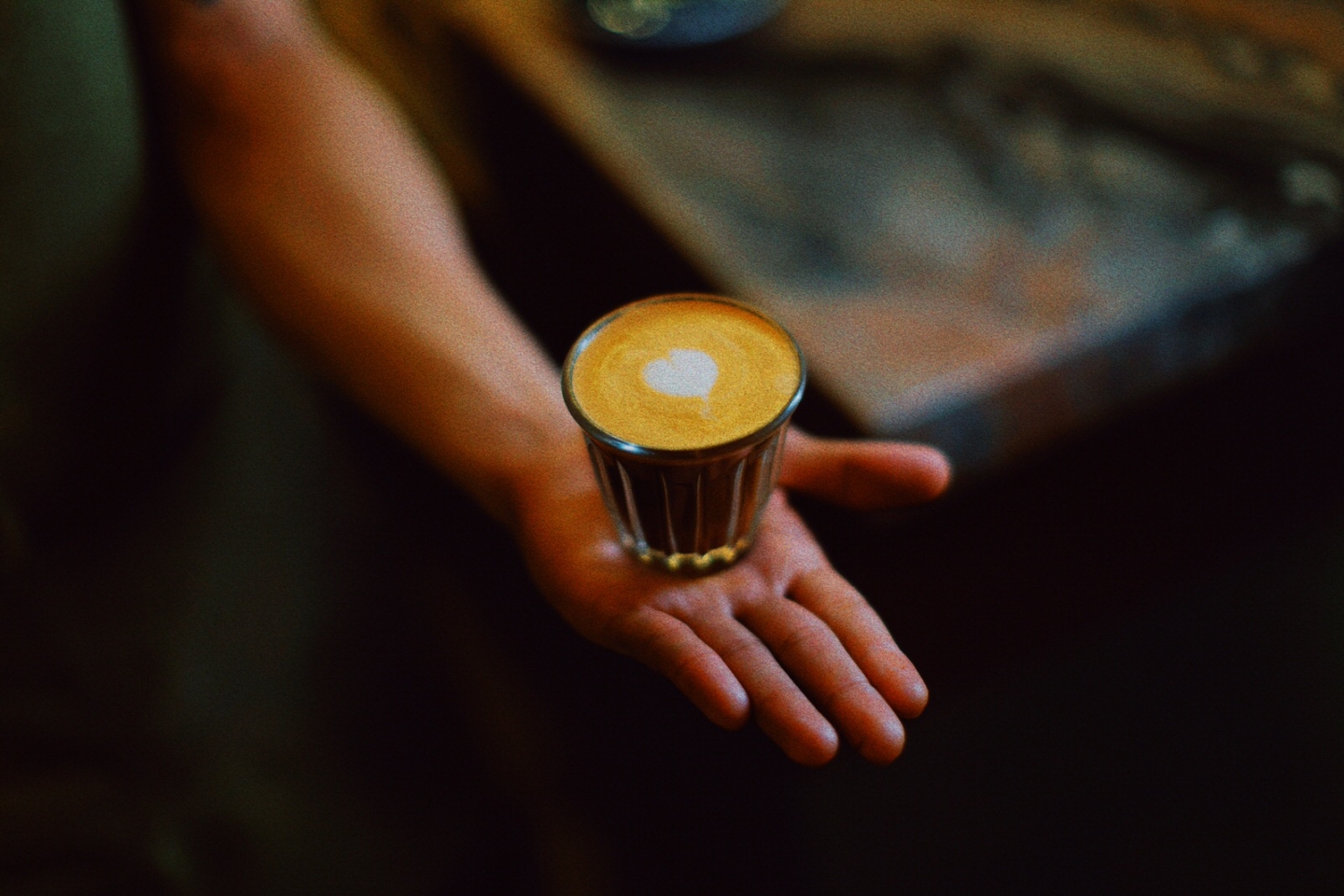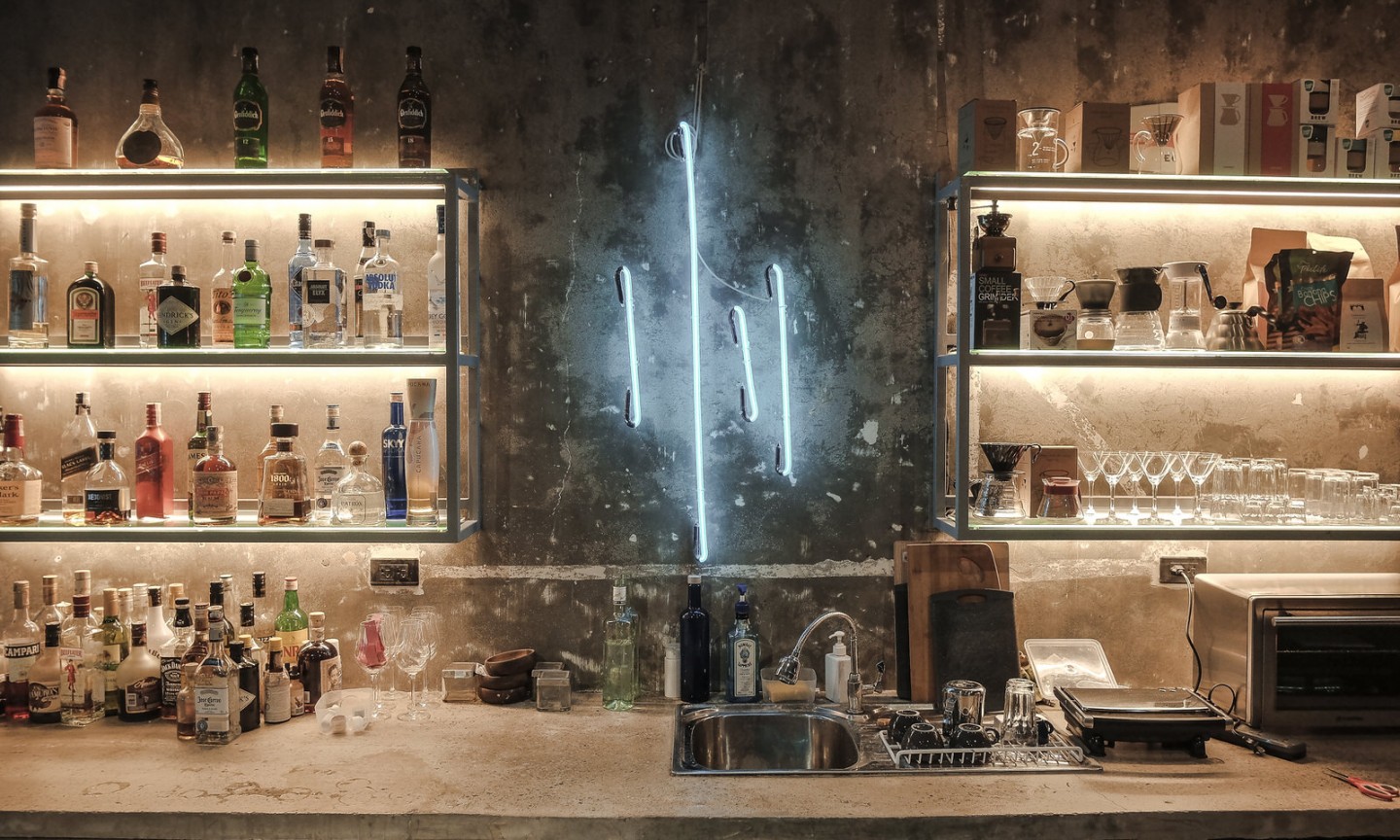
Art and culture were never the first things that come to mind when one thought about the gritty roads of Poblacion. What used to be a cluster of bars scattered with provocatively-dressed women along nondescript streets has started to break away from its red light district reputation. Making a name for itself, Poblacion is fast becoming more colorful than the kitschy neon signs that greet your arrival.
One of the establishments fronting the Poblacion renaissance into a cross-cultural boiling pot of art, music, and food is Dulo. At first glance, its plain concrete façade is easy to miss, only signified by the graffiti pattern that adorns its entrance. Unlike other establishments, there are no glowing signs festooned outside to tell you this is the place, but it is exactly its curious charm and subtle eccentricity that draws people in.
Inside is even more unexpected. There are indoor plants that look like they’ve been plucked out of a Pinterest wet dream, contrasted by a menagerie of furniture that shouldn’t mesh well together but do. The repurposed woodwork and upcycled chairs might scream urban coffee shop, but the Victorian-esque mirrors and neon lights linger between the lines of a dive bar and speakeasy. It opens its doors at 8AM, ready to serve you a cup of artisanal joe, but sometimes closes as late as 6AM, bidding you goodnight with a sake sour. Which begs the question, what exactly is Dulo?
Photography by Zaldine Alvaro
As a restaurant, bar, café, and events venue all in one, Dulo is a space that wears many hats. But at its core, it is a community platform that aims to provide a home for artists, creative thinkers, and anyone with the slightest sliver of appreciation for art. “It’s called Dulo because we cater to both ends of the creative spectrum – whether you’re an established, high-brow artist who’s been in the industry for a long time, or an emerging, starving artist with no experience,” shared Rae Pineda, who co-owns the newest kid on the Poblacion block with partner Alexa Arabejo. “We also call it Dulo because we want to highlight the outskirts of the city. Most people think that the heart of the city is in the central business district, but so much pockets of art surrounding that are being ignored.”
Inspired by Malate’s heyday prominence as the cultural destination for young artists, Dulo aims to provide the same recluse. “There was this bar in Malate back in the 70’s called Penguin. They became known because they were the creative space that people needed,” Pineda said. Penguin Bar & Café, a hole-in-the-wall space, which opened its doors at the height of Martial Law, was home to writers, photographers, and other artists from all walks of life. “[They] would come there, chill out, and bask in each other’s creative energy. All pretenses just fly out the window. That’s what we want to recreate while building our own community.”
Dulo markets itself as a blank canvas that encourages people to create, whether you know how to work a paint brush or not. Its second floor, an expansive, empty space built for events, has housed a slew of different happenings – from exhibits, live shows, and stand-up comedy, to burlesque performances and workshops. Some events, such as Voodoo Child, a night dedicated to rock and roll, and the recent Tago sa Dulo, a collaboration with Tago Jazz Bar in Cubao, have garnered such positive reception that they have been added to their regular repertoire. One thing is clear: Dulo welcomes all forms of artistic expression with open arms, no matter which industry or field you’re from. “We really want to be a safe, unfiltered haven that inspires collaboration among the creative community,” Pineda asserted. The concept of a “circle” or “scene” might be mistaken for clique mentality and further reiterate the exclusivity of art, but Dulo assures everyone that they are anything but. “Our main goal is to bridge the gap between the artists and audiences, even those who know nothing about art. We don’t want to be intimidating. We hear people say things like, ‘I’m interested in art but I’m not an artist, where do I go?’ Well, we’re saying you can always visit Dulo.”
Inspired by Malate’s heyday prominence as the cultural destination for young artists, Dulo aims to provide the same recluse. “There was this bar in Malate back in the 70’s called Penguin. They became known because they were the creative space that people needed,” Pineda said. Penguin Bar & Café, a hole-in-the-wall space, which opened its doors at the height of Martial Law, was home to writers, photographers, and other artists from all walks of life. “[They] would come there, chill out, and bask in each other’s creative energy. All pretenses just fly out the window. That’s what we want to recreate while building our own community.”
Dulo markets itself as a blank canvas that encourages people to create, whether you know how to work a paint brush or not. Its second floor, an expansive, empty space built for events, has housed a slew of different happenings – from exhibits, live shows, and stand-up comedy, to burlesque performances and workshops. Some events, such as Voodoo Child, a night dedicated to rock and roll, and the recent Tago sa Dulo, a collaboration with Tago Jazz Bar in Cubao, have garnered such positive reception that they have been added to their regular repertoire. One thing is clear: Dulo welcomes all forms of artistic expression with open arms, no matter which industry or field you’re from. “We really want to be a safe, unfiltered haven that inspires collaboration among the creative community,” Pineda asserted. The concept of a “circle” or “scene” might be mistaken for clique mentality and further reiterate the exclusivity of art, but Dulo assures everyone that they are anything but. “Our main goal is to bridge the gap between the artists and audiences, even those who know nothing about art. We don’t want to be intimidating. We hear people say things like, ‘I’m interested in art but I’m not an artist, where do I go?’ Well, we’re saying you can always visit Dulo.”
Its menu is no exception to the place’s recurring ingenuity. A mix of various Asian flavors, their selection is heavily influenced by Pineda’s taste for her former home. “I lived in Taipei before coming here, and I noticed how Taiwanese food isn’t so common in Manila so I thought of combining it with what we have here,” she noted. “We’re a creative space so we encourage our bar and kitchen to be as imaginative as they can.” The result? A playful carte du jour that includes mushroom bao – a flavorful combination of shiitake mushrooms, mayo, and fried shallots with an after-taste reminiscent of sisig, clam chowder miso soup – an inventive broth that merges two soup staples, and the well-loved pork belly bowl that is nothing short of culinary catharsis. Their drinks menu, on the other hand, is as innovative as you’d expect it to be, pleasantly surprising your palates with the likes of spiked milk tea they call the Naichatini, and their off-menu sake sour that will have you ordering another round or three.
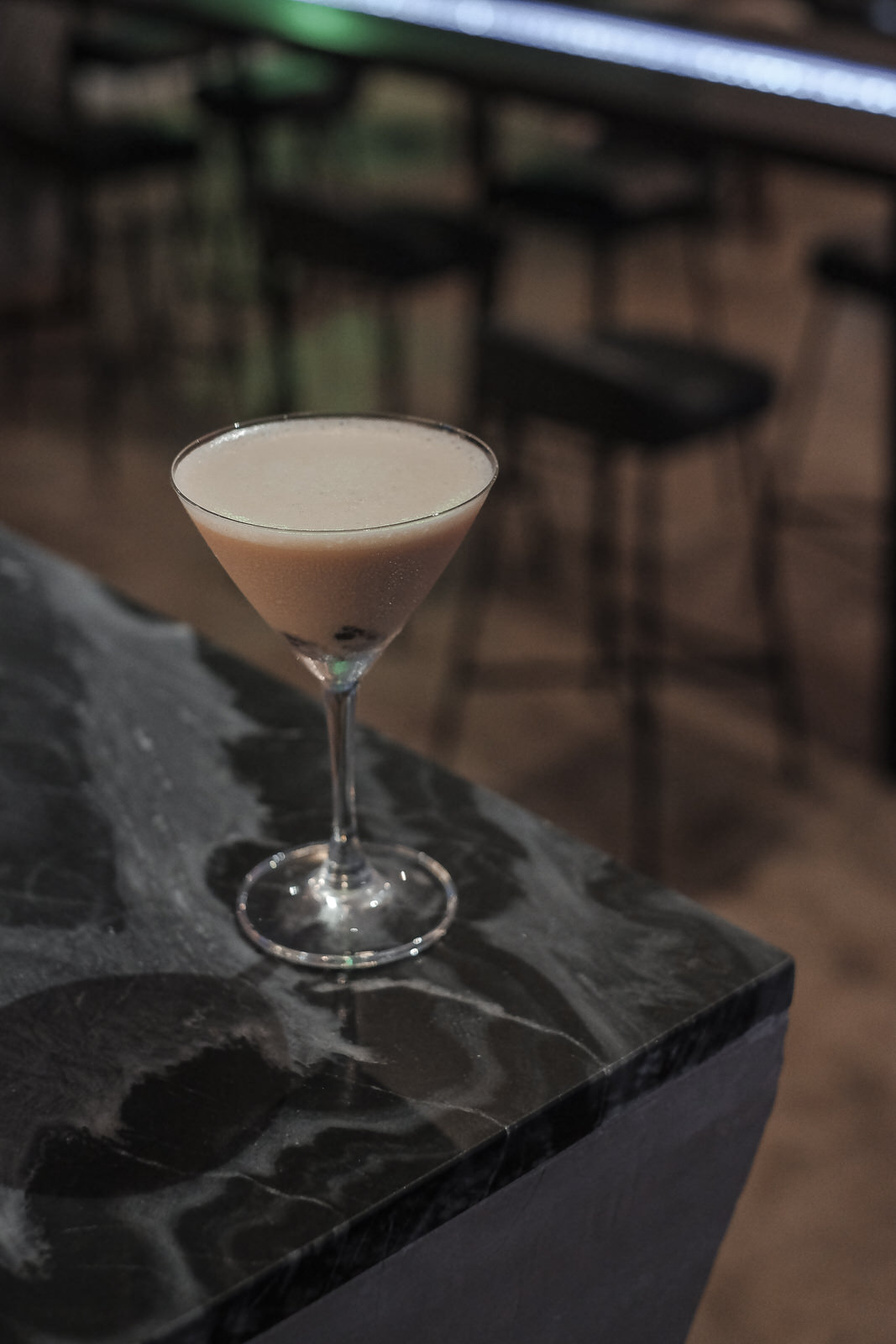
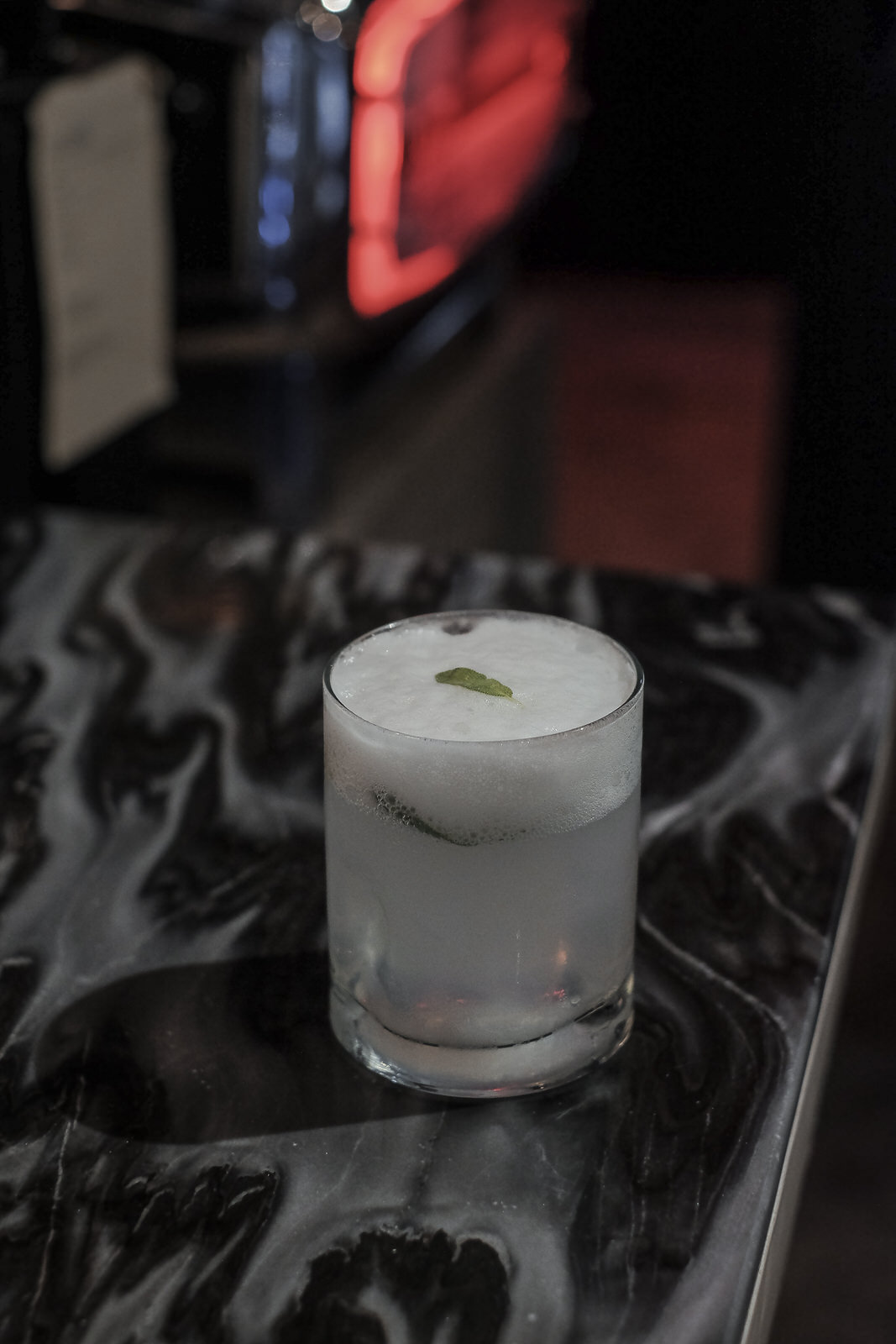
Already being flocked to by visitors from all over the metro and beyond, Dulo owes their success to their diverse team, which is composed of industry veterans and talented novices alike. Their chefs hail from the likes of Vask and Black Sheep, while their bar consultant, Kath Eckstein, is an acclaimed mixologist in the world of bartending. Still preaching its dedication to community and collaboration, the staff is also comprised of both students and professionals who all have one common denominator: their passion. Whether it’s being in a band, writing, or having an affinity for coffee beans, all Dulo employees continue to uphold the space’s communal feel. “Literally anyone can be part of the Dulo family,” Pineda beamed.
While fairly new at only two months old, Dulo is making stark contributions to the growing progressiveness of Poblacion. “The best thing about [Poblacion] is it’s become such a community now. There didn’t used to be much places in Manila where you can just walk around, and it’s great because all the establishments have their own concepts,” she acknowledged, referencing places such as Tambai, which has become an institution on its own, and their own neighbor, Crying Tiger Street Kitchen. “Instead of competing with one another, we help each other out, even with small things. Say we’re missing a wire or cable. I could just call up the guys from Z Hostel. We also support each other’s events.”
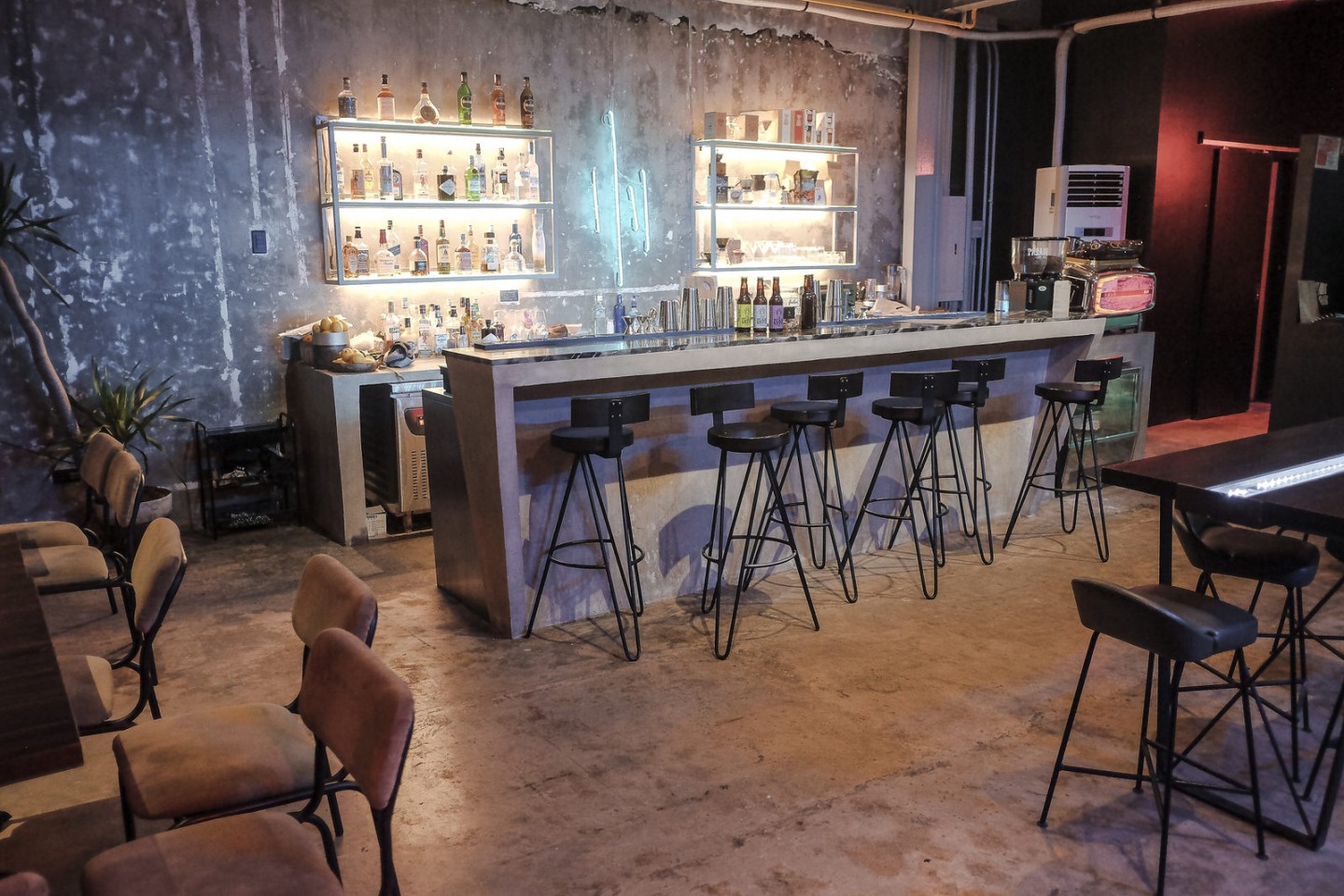
Similar to Penguin’s genesis during an era of turmoil when freedom of expression came at an expensive price, Dulo also aims to be vanguards of critical thinking and societal involvement through art – at a time when forces threaten to put humanity in the back burner. “Once we’re done polishing the rough edges, we want to be facilitators of discussion and be more proactive about social issues – make the most of this platform,” she affirms. “We don’t want to make art just to sell. We want it to be an avenue for people to be part of the shifting social norms. Just make sh*t happen.”
Even their logo, which might look like a row of randomly placed lines at first, signifies so much more. “It symbolizes the spectrum – the ebb and flow of life. There are highs and lows, but you just have to go with it,” Pineda explained. “You can’t plateau on a high, but you can’t plateau on a low either. It’s balance.” And it is on this foundation of balance that Dulo finds the perfect fusion of symmetry and creative chaos, and tradition and constant reinvention.

